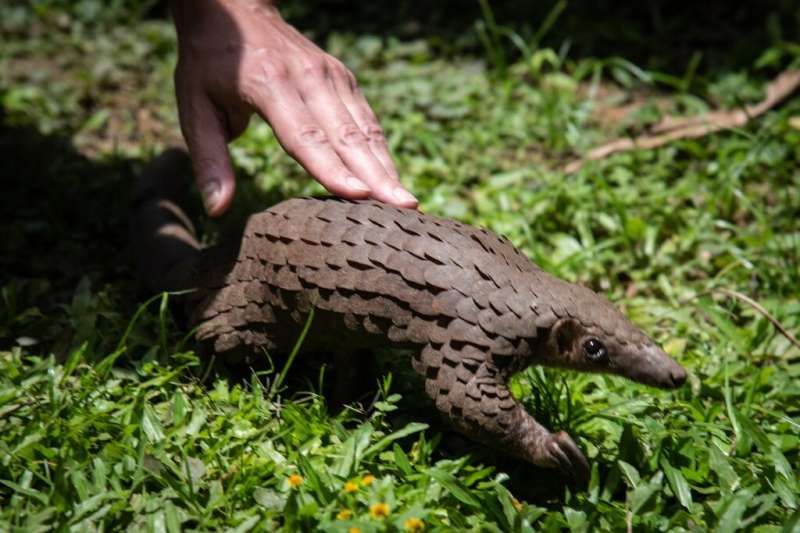Pangolins are believed to be the world's most-trafficked animal
Nigeria has seized pangolin scales and tusks and bones from endangered species allegedly bound for export to Vietnam, a senior customs official said Wednesday.
Pangolin scales are traditionally used in China for a range of ailments, including treating blood clots, although there is no scientific evidence they have medicinal value.
Studies have also suggested the pangolin may have been the intermediate host that transmitted the coronavirus to humans when it first emerged at a wet market in the Chinese city of Wuhan in late 2019.
The Nigerian items concealed in a container as furniture materials were intercepted by customs operatives at Apapa port in Lagos on January 21, the area controller, Mohammed Abba-Kura told AFP.
"Immediately the container was opened, logs were seen in front, and upon 100 percent physical examination of the container, elephant tusk and the pangolin scales were seen concealed by the logs," he said.
"The items, falsely declared as furniture, comprised 162 sacks of pangolin scales... and 57 sacks of mixed endangered species of various sizes such as ivory/animal horns, lion bones and others," he said.
The total haul weighed 8,800 kilogrammes (19,400 pounds), he said.
Abba-Kura said the items were valued at 952 million naira ($2.5 million, 2.07 million euros) on the black market.
He said the consignment was heading to Haiphong, Vietnam before it was intercepted, adding that a suspect had been arrested over the shipment.
Nigeria is major hub for traffickers sending the scales of African pangolins to Asia.
Pangolins are believed to be the world's most trafficked mammals accounting for as much as 20 percent of all illegal wildlife trade.
Nigeria has made huge seizures of illegal animal parts in recent years in line with the Convention of International Trade in Endangered Species (CITES).
© 2021 AFP
























